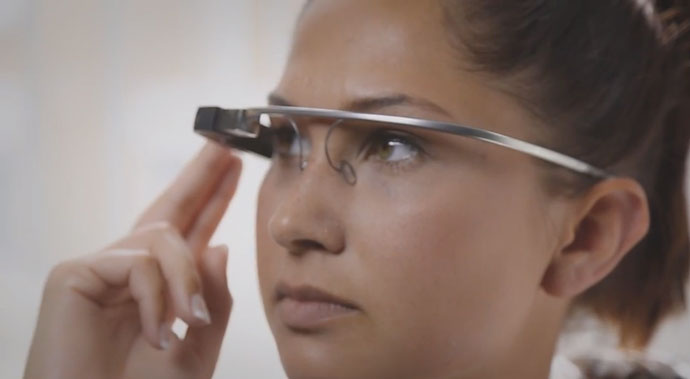Watch Out! Google Glass Is Now Able To Read Your Mind
Nobody likes a know-it-all, or at the very least nobody likes a know-it-all until there’s something they need to find out. For the last decade Google has filled this role in many people’s lives, putting innumerable pieces of information at the fingertips of ordinary people. A new application for Google Glass may make fingertips obsolete once and for all.
The application, which is called MindRDR and is developed by UK company ThisPlace, allows users to control some of the basic functions of Google Glass without talking to or touching the computer. The possibilities of technology like this are innumerable, but Google isn’t jumping into anything just yet.
Google Isn’t Licensing Mind-Reading
Google may be fighting a losing battle to keep its wearable technology, Google Glass, cool, but applications like this are going to draw huge interest no matter what. The science-fiction appeal of controlling a wearable computer with one’s mind is just too impressive to ignore.
The MindRDR app for the wearable computer is still a rough draft of what mind reading technology could be in the future.The device is only able to read a yes or no signal from the brain of the individual using it. The signal is read by an extra band, which measures brain activity. That result is then put into into Google Glass allowing basic exploration of the device’s functions.
The technology is not available from the Google Glass app store and will have to be downloaded directly from the company’s website in order to be loaded onto the Google device. Google isn’t officially behind the product though. As with anything else that could enhance its advertising offerings, the company can’t be ruled out as a possible future peddler of mind-reading.
Privacy Be Damned, Telepathy Is The Future
For the moment ,the limited functionality of the project makes it difficult to predict that Google, or other tech companies, will begin to incorporate the technology into their devices. In the medium-term however, there are great hopes from communities of people with degenerative debilitating diseases, and those who care for them. Telepathy may be the future of the user interface, though that may worry people who place a premium on privacy.
There has already been a slew controversies surrounding the Google wearable computer. Its video recorder is viewed as an invasion by many, and its mind reading abilities are sure to be regarded with the same skepticism. If Google is allowed inside the minds of its audience, the company will face obstacles in selling the device to a public already skeptical about the way that companies, and governments, handle their data.










































